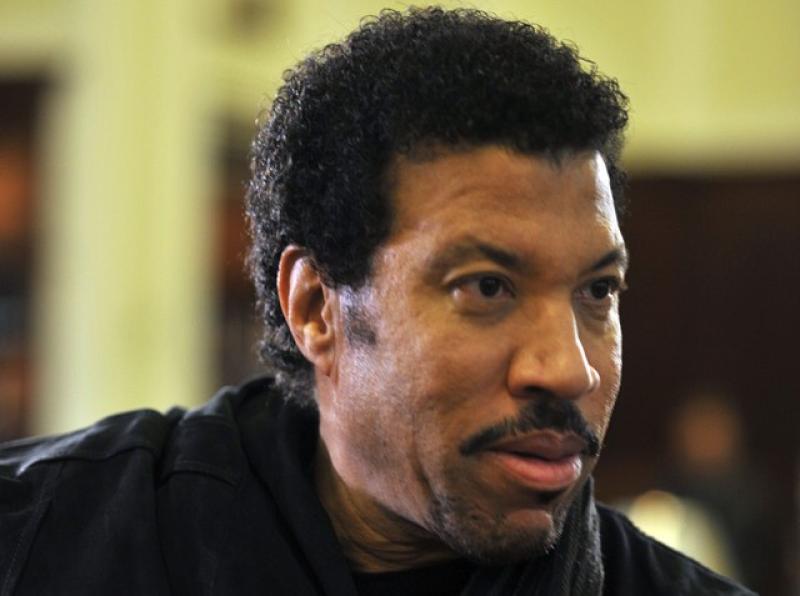Who Do You Think You Are? USA: Lionel Richie, BBC One | reviews, news & interviews
Who Do You Think You Are? USA: Lionel Richie, BBC One
Who Do You Think You Are? USA: Lionel Richie, BBC One
Soul great discovers a nationally important civil rights pioneer in his past

“It's about as close to a spiritual awakening as I’ve had in my entire life,” said Lionel Richie. He was standing close to the unmarked grave of his great-grandfather, in the pauper’s section of an overgrown Chattanooga cemetery. Richie began the search for the man he’d discovered was called John Louis Brown thinking he was on the trail of a scoundrel. He ended it discovering Brown was a former slave who had become a pioneer of the American civil rights movement.
Emotions are generally hidden in the American version of Who Do You Think You Are. It's also more literal when pegging its subject. So it began with Richie at a grand piano singing a snatch of The Commodores’s “Easy”. Equally, it’s inclined to focus on one aspect of the family history being disinterred, with less material framing the subject, giving less of an idea of, well, who they are.
Richie recalled being put to bed when the Ku Klux Klan came to town
Richie’s children Miles and Sofia were seen, but hardly heard. We never discovered why Sofia’s hand was bandaged at the beginning of the programme, and why it remained so when Richie returned from his travels. There was little off-the-cuff exposition to the camera from Richie. Most of his comments were heard as voiceover. Just as the scenes with his children felt sterile the interaction with his sister was even paced, with little spontaneity. Richie himself was measured but incredibly dignified, almost statesman-like. Even so, it felt as though this was a man who would always give it to you straight.
This short, revelation-filled programme didn’t develop some potentially intriguing diversions. Richie commented that after he’d joined The Commodores, his blinders came off and he soon learnt his life experiences weren't typical of black America – he recalled being sheltered, not knowing about segregation and being put to bed when the Ku Klux Klan came to town. A digression into his learning curve would have been fascinating.
Also, he talked of his mother and grandmother, but not his father. The delving into the past we saw here was via his grandmother. The hint of his upbringing being matriarchal was tantalising, but not dug into. His sister had begun the process of unravelling the family history. Apart from his distant forebears, men had little role in this slice of Richie’s life. He said his grandmother kept her cards close and he had no idea of the identity of his grandfather. He began the journey to find out who this man and his parents might have been.
Richie's great grandfather John Louis Brown was a figure of national importance
Tuskegee, Alabama was Richie’s hometown - and lends its name to his recent, country-flavoured album. His mother and grandmother taught at the Tuskegee Institute. The search took Richie from Los Angeles back to Alabama, and then Tennessee. His great grandfather was John Louis Brown, the son of Dr. Morgan Brown, a white slave owner. Morgan Brown ensured that Maria, John Louis Brown’s mother was provided for and money set aside for her child’s education – even though she was his slave.
John Louis Brown survived the Civil War, where he was pressed into the service as the personal slave – body servant – of Morgan W. Brown, Dr. Morgan Brown’s son. John Louis Brown was forced onto the side fighting against emancipation. After the Civil War he became the national head of the Knights of the Wise Men, a black welfare/fraternal organisation. He wrote their rule book. But they suffered financial problems, and he ended his life in 1931 as the caretaker of the cemetery he was buried in. Richie's great grandfather was a figure of national importance.
Aspects of Lionel Richie’s life have been raked through the press, mainly the travails of his adopted daughter Nicole. None of this was part of the programme, and none of it needed to be. But it cast a shadow. As the programme closed, he told his sister, son and daughter of the discoveries, stressing that the family had a hitherto undiscovered history of strength that his children should draw on. If anyone knows they should listen, it’s Lionel Richie.
Buy
Explore topics
Share this article
Add comment
The future of Arts Journalism
You can stop theartsdesk.com closing!
We urgently need financing to survive. Our fundraising drive has thus far raised £49,000 but we need to reach £100,000 or we will be forced to close. Please contribute here: https://gofund.me/c3f6033d
And if you can forward this information to anyone who might assist, we’d be grateful.

Subscribe to theartsdesk.com
Thank you for continuing to read our work on theartsdesk.com. For unlimited access to every article in its entirety, including our archive of more than 15,000 pieces, we're asking for £5 per month or £40 per year. We feel it's a very good deal, and hope you do too.
To take a subscription now simply click here.
And if you're looking for that extra gift for a friend or family member, why not treat them to a theartsdesk.com gift subscription?

Comments
I wish I had seen this show.
You could watch it on You